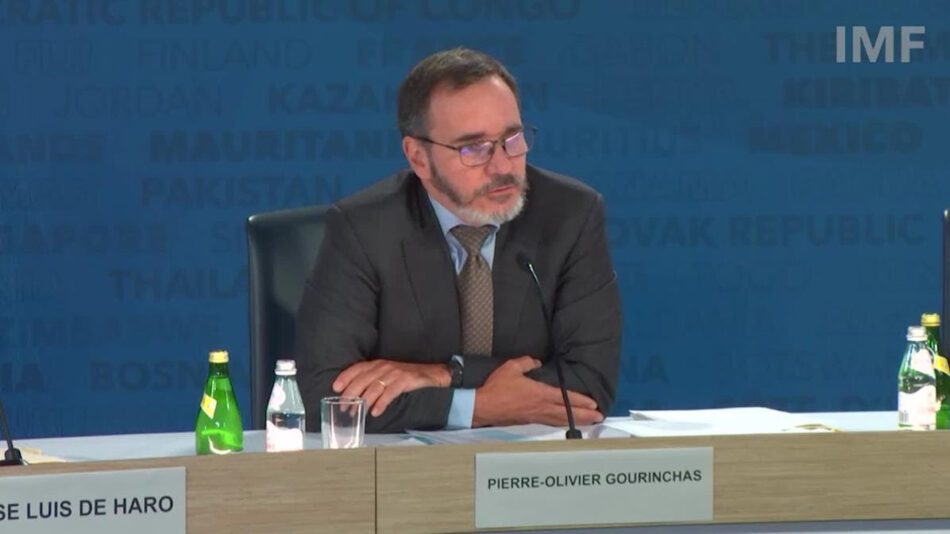IMF World Economic Outlook Presser

Global growth is projected to be 3.2%, with the battle against inflation largely won the IMF said in its World Economic Outlook (WEO) forecast Tuesday (October 22, 2024) in Washington, DC.
“The battle against inflation is almost won. After peaking at 9.4% year on year in the third quarter of 2022, we now project headline inflation will fall to 3.5% by the end of next year. In most countries, inflation is now hovering close to central bank targets. Now inflation came down while the global economy remained resilient. Growth is projected to hold steady at 3.2% in 2024 and 2025,” said IMF Chief Economist Pierre-Olivier Gourinchas.
But with geopolitical conflict, increasing trade tensions and elections looming and leadership changes in major economies around the world there is considerable uncertainty.
“This downside risks include an escalation in regional conflicts, especially in the Middle East, which could pose serious risks for commodity markets. Policy shifts toward undesirable trade and industrial policies could also significantly lower output. A sharp reduction in migration into advanced economies, which can unwind some of the supply gains that helped ease inflation in recent quarters. This could trigger an abrupt tightening of global financial conditions that would further depress output and together these represent about 1.6% of global output in 2026,” said Gourinchas, head of the Fund’s Research Department.
With all the uncertainty, it’s important for policy makers to set a clear course on reducing their debt levels the report said.
“It is urgent to stabilize debt dynamics and rebuild much needed fiscal buffers for the United States and China. Current fiscal plans do not stabilize the dynamics for other countries despite early improvements. There are increasing signs of slippage. The path is narrow. Delaying consolidation increases the risk of disorderly adjustments, while an excessively abrupt turn towards fiscal tightening could hurt economic activity. Success requires implementing where necessary and without delay,” warned Gourinchas.
Gourinchas said that if countries didn’t get their fiscal house in order and set credible path to debt reduction, then markets would in all likelihood step in with negative consequences for growth.
“I think when countries have elevated debt levels, when interest rates are high, when growth is okay but not great, there is a risk that things could escalate or get out of control quickly. And so, there is a need to bring, debt levels down, stabilize them when they are not stabilized, and rebuild, fiscal buffers. That is true for many countries around the world. And if you’re not doing that and that’s, getting to the question that was asked by the gentleman on the right here. If you’re not doing that, that’s when you find yourself potentially later on at the mercy of market pressures that will force an adjustment that is uncontrolled to a large extent, at which point you have very few degrees of freedom, so you don’t want to get in that position,” finished Gourinchas
To read the full report, World Economic Outlook – All Issues





